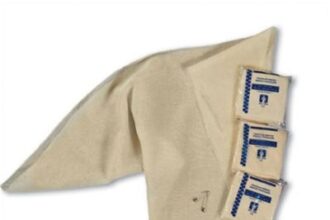By Paul Auerbach, M.D.

There are many myths related to outdoor medicine. These need to be “debunked,” so that people do not fall prey to outdated and useless techniques. Here are some of the most common myths (in italix):
By Paul Auerbach, M.D.

There are many myths related to outdoor medicine. These need to be “debunked,” so that people do not fall prey to outdated and useless techniques. Here are some of the most common myths (in italix):
1. Mechanical suction, electric shock, and immersion in ice water are effective first aid (“field”) therapies for snakebite. In truth, these are not only not helpful, they may be quite harmful. Antivenom therapy is the only therapy that has been proven effective, with the possible exception of pressure immobilization for certain elapid (e.g., coral) snake bites.
2. Urinating on a jellyfish sting is an effective method to reduce pain. This is of very limited value. Some persons will cite that it was helpful in their particular case, but at least as many persons will state that it did not diminish the pain. The most effective therapy is decontamination with a specific topical compound, such as vinegar or ammonia. The decontaminant chosen depends upon the species of stinging jellyfish.
3. Applying a cold pack to a jellyfish sting is the most effective method to reduce the pain. Current information indicates that application of warmth (e.g., immersion in non-scalding hot water) may be much more beneficial.
4. Rabies shots are injected into the abdomen and are horribly painful. Not true- post exposure rabies vaccination may include a painful component as rabies immune globulin is injected into the bite site, but the subsequent vaccine, which is administered as part of the post exposure treatment, is given as a series of very tolerable injections into the arm or thigh.
5. In any circumstance of frostbite, rapid rewarming is essential. Actually, this should only be done if the body part can be relatively guaranteed to remain thawed. Otherwise, re-freezing the tissue causes significantly more damage than does the initial episode of freezing.
6. The Heimlich maneuver should be used for any victim of submersion (near-drowning) to remove water from the lungs and improve the chance for survival. The Heimlich maneuver has never been proven to be of use in humans in this situation, and may in fact increase the risk for vomiting and harmful inhalation of gastric contents. There is no evidence that it removes water from the lungs.
7. Drinking large amounts of liquids is harmful during exercise because it promotes stomach cramps. Quite the opposite – so long as the ingested amounts are prudent and don’t promote nausea from a full stomach, it is essential to replace fluids and electrolytes constantly during periods of high exertion, particularly in the heat, to avoid dehydration.
8. A person struck by lightning is “electrically charged” and may not be safely touched. This is not true. It is perfectly safe to touch such a person, and in fact the sooner that breathing can be supported, the more likely that the victim will survive with maximal neurological recovery.
9. In cold water, it is better to remain in the water where one feels warm that to pull oneself onto a rescue vessel or platform and be exposed to wind chill. Absolutely not true – one may lose heat 25 times as fast in the water as in air, so no matter how uncomfortable you feel, if it is possible to get out of the water, do so.
10. Sharks and bears are attracted to menstrual blood, so it is important for women to avoid diving and hiking during menstruation. This is a false concept, and has never been proven to be true, either epidemiologically or scientifically.







